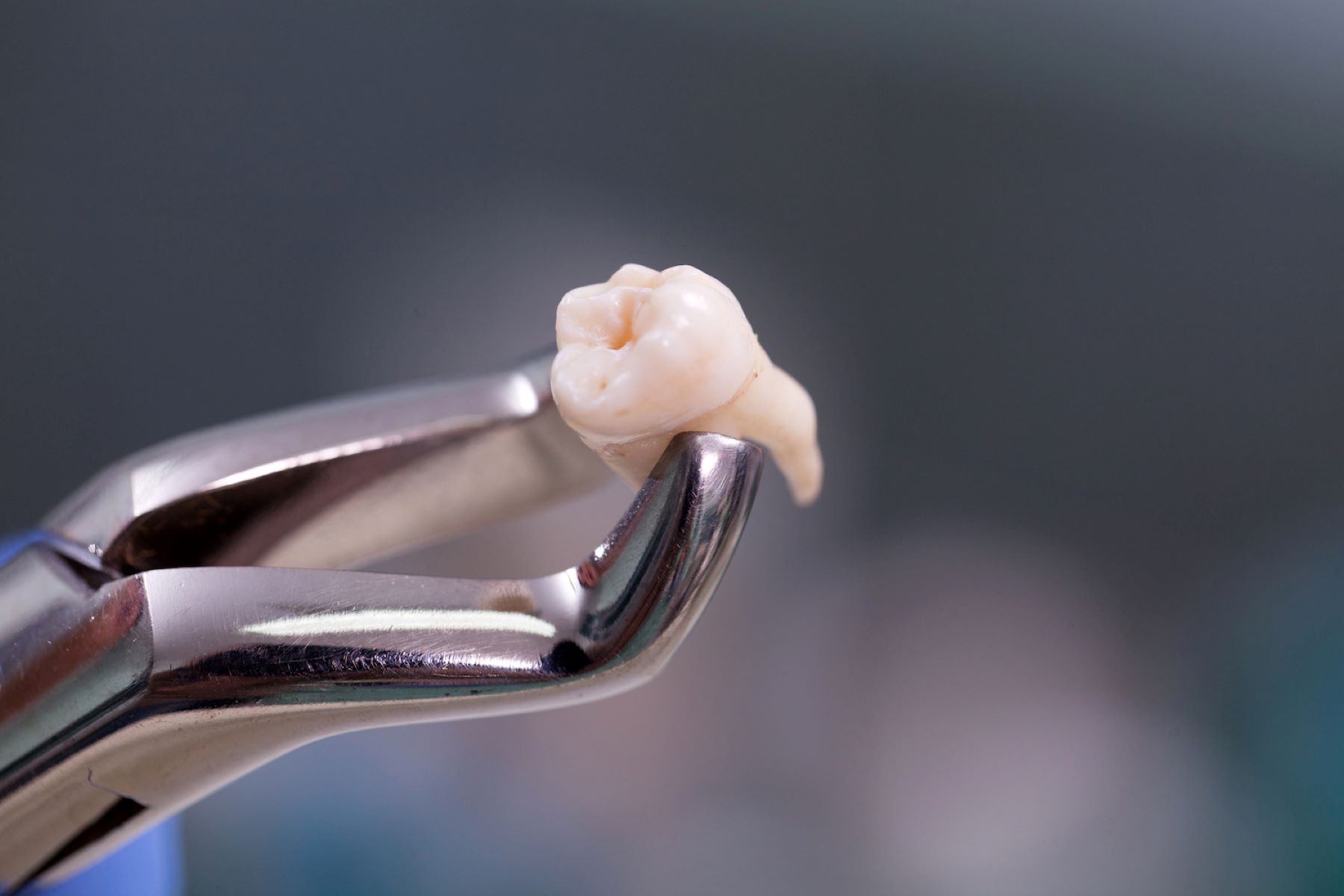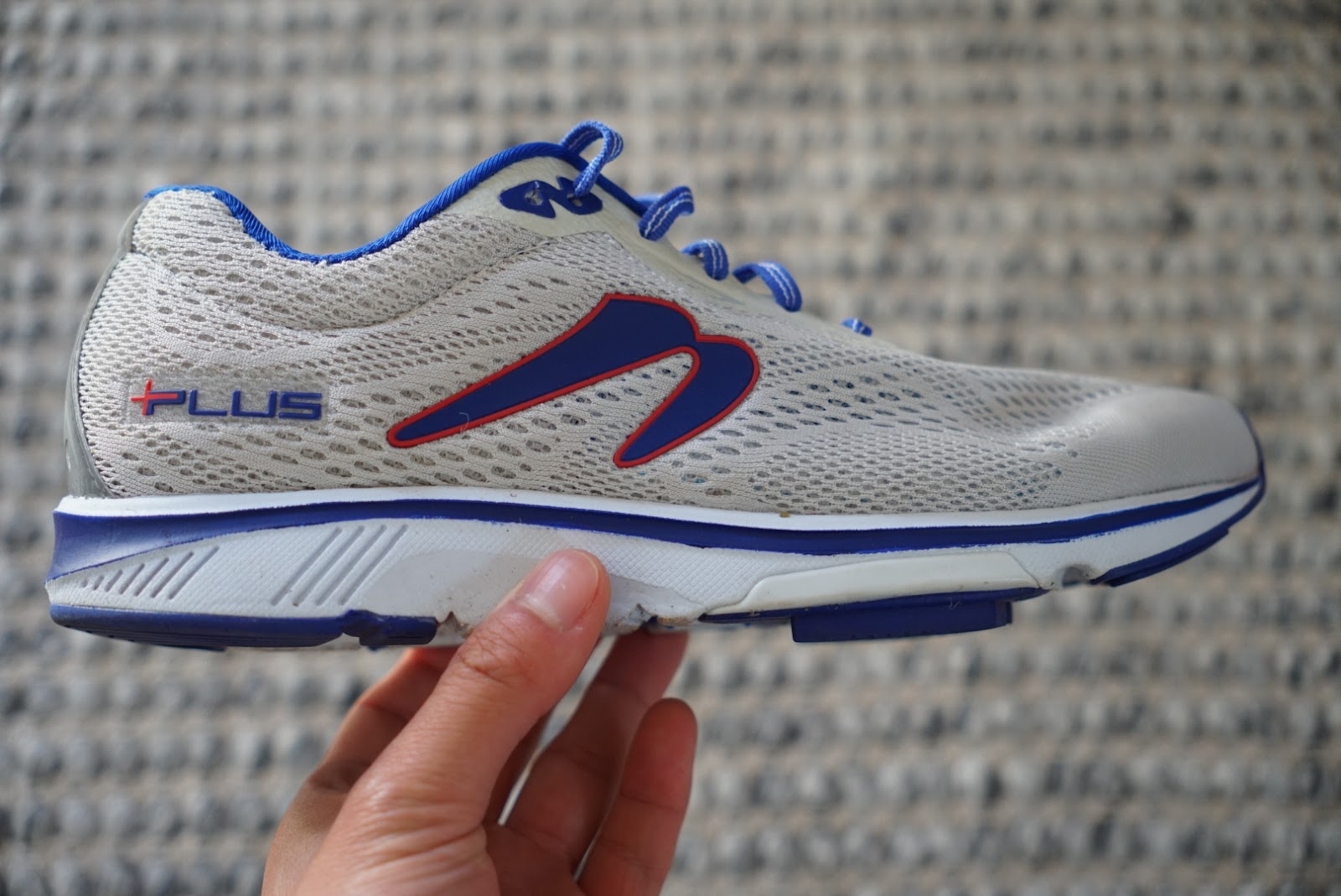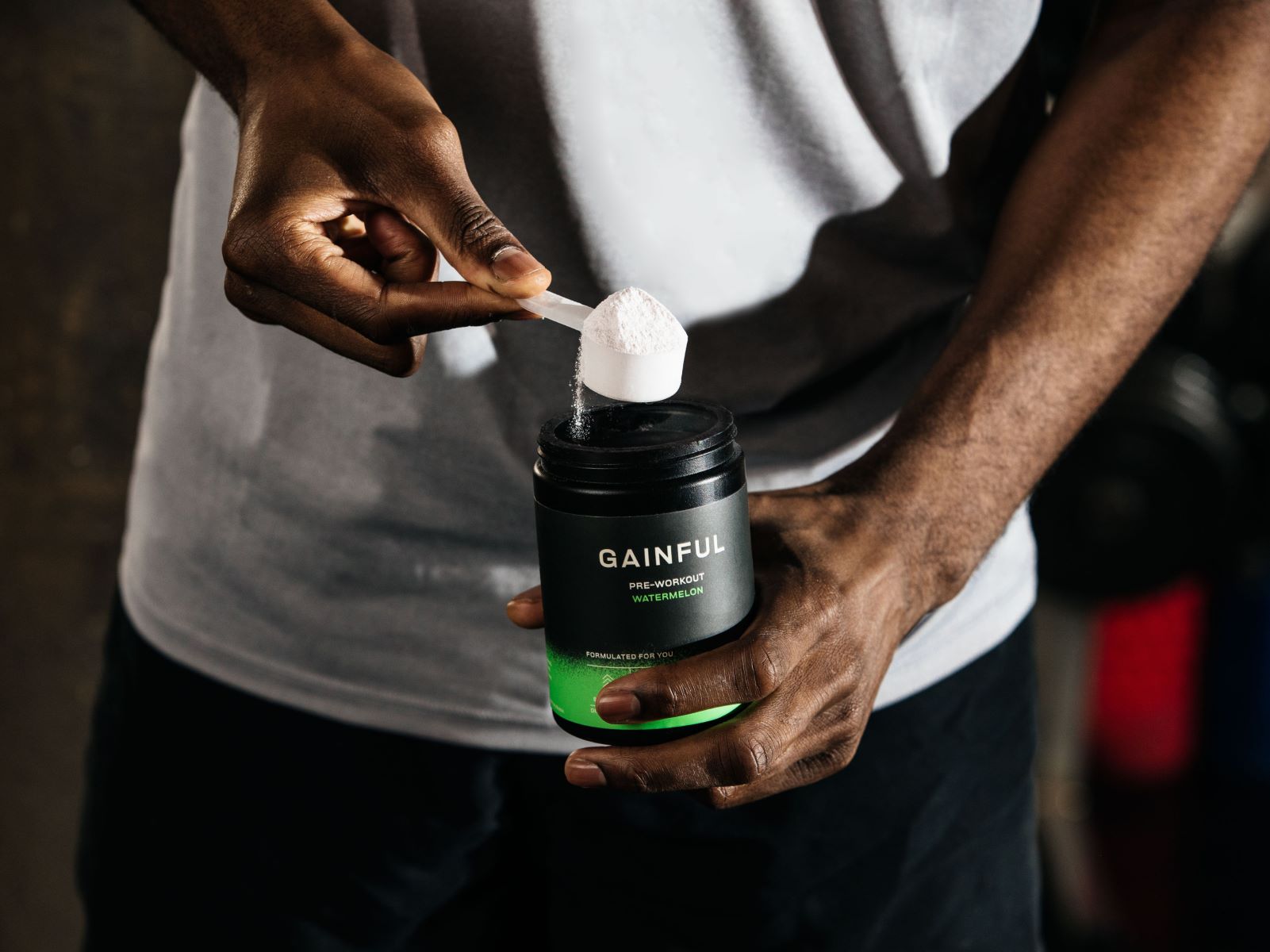Home>Misc>Featured>When Can I Workout After Wisdom Teeth Extraction


Featured
When Can I Workout After Wisdom Teeth Extraction
Modified: August 19, 2023
Featured: Find out when you can safely resume your workouts after wisdom teeth extraction, and ensure a smooth recovery.
Can I Exercise After Wisdom Teeth Extraction?
Wisdom teeth extraction is a common dental procedure that many people undergo at some point in their lives. After the surgery, you may be wondering when it’s safe to resume your regular exercise routine. While physical activity is important for overall health, it’s essential to give your body the proper time to heal after the extraction.
Before determining when you can exercise after wisdom teeth extraction, it’s crucial to consult with your oral surgeon or dentist. Every individual is unique, and the healing process can vary depending on various factors such as the complexity of the extraction, your overall health, and any complications that may have occurred during the surgery.
The general rule of thumb is to avoid any strenuous physical activity for at least 48 to 72 hours after the surgery. During this initial period, your body needs time to recover from the procedure and for blood clot formation, which aids in the healing process. Engaging in intense exercise can increase blood flow to the surgical site, increasing the risk of bleeding and delaying the healing process.
However, it’s important to note that this timeline may vary based on your specific situation. Your oral surgeon or dentist will provide you with personalized post-operative instructions, including recommendations on when it is safe to resume exercise.
Additionally, it’s essential to listen to your body and prioritize rest during the first few days after the surgery. Take this time to nourish yourself with nutritious foods, stay hydrated, and get plenty of sleep. This will support your body’s natural healing processes and minimize any discomfort or complications.
Overall, the key is to gradually ease back into your exercise routine. If you experience any pain, swelling, bleeding, or other concerning symptoms during or after exercising, stop immediately and consult with your oral surgeon or dentist.
Remember, your oral health should always be a priority, and engaging in physical activity too soon after wisdom teeth extraction can jeopardize your recovery. It’s crucial to follow the guidelines provided by your dentist or oral surgeon and give yourself ample time to heal before resuming rigorous exercise.
Next, let’s explore the factors to consider before exercising after wisdom teeth extraction.
Factors to Consider Before Exercising After Wisdom Teeth Extraction
While it’s tempting to jump back into your regular exercise routine after wisdom teeth extraction, it’s important to consider several factors before doing so. By taking these factors into account, you can ensure a safe and smooth recovery process.
1. Healing Progress: Every individual’s healing process varies, and it’s crucial to give your body enough time to recover before engaging in strenuous physical activity. Follow the guidelines provided by your oral surgeon or dentist regarding when it’s safe to resume exercise. Some individuals may need a longer healing period, while others may be able to resume light exercises sooner.
2. Complexity of the Extraction: The complexity of the wisdom teeth extraction procedure can impact how quickly you can return to exercise. If your surgery involved multiple extractions, impacted teeth, or other complications, it’s important to wait for a longer duration before engaging in intense physical activity. This allows for proper healing and reduces the risk of post-operative complications.
3. General Health: Your overall health plays a significant role in determining when it’s safe to exercise after wisdom teeth extraction. If you have any underlying health conditions, such as diabetes or compromised immune function, it may take longer for your body to heal. It’s advisable to consult with your healthcare provider to ensure that resuming exercise will not have any adverse effects on your health or impede the healing process.
4. Pain and Discomfort: Pain and discomfort are common after wisdom teeth extraction. Before exercising, it’s important to assess your pain levels. If you are still experiencing significant pain or discomfort, it’s best to wait until these symptoms subside. Exercise can exacerbate pain and hinder the healing process. If you have any concerns, consult with your oral surgeon or dentist.
5. Medications and Instructions: Your oral surgeon or dentist may prescribe medications, such as pain relievers or antibiotics, to manage post-operative symptoms and prevent infection. It’s important to follow their instructions regarding medication use and timing. Some medications may interact with exercise or cause dizziness or drowsiness, making it unsafe to engage in physical activity. Always consult with your healthcare professional before combining exercise with any prescribed medications.
By considering these factors, you can make an informed decision about when to resume exercise after wisdom teeth extraction. It’s important to prioritize your oral health and allow your body enough time to heal before engaging in strenuous physical activity. In the next section, we will discuss when it’s safe to resume light exercise after wisdom teeth extraction.
When to Resume Light Exercise After Wisdom Teeth Extraction
After wisdom teeth extraction, it’s essential to ease back into physical activity gradually. While strenuous exercise should be avoided for the first few days, you may be wondering when it’s safe to resume light exercise. Here are some general guidelines to follow:
1. Wait for 48 to 72 Hours: It’s recommended to wait for at least 48 to 72 hours after the surgery before engaging in any form of exercise. During this initial period, your body needs time to heal, and intense physical activity can disrupt the healing process and increase the risk of complications, such as bleeding or dry socket.
2. Consult with Your Dentist: Before resuming any exercise routine, it’s crucial to consult with your dentist or oral surgeon. They know the specifics of your case and can provide personalized advice. They will assess your healing progress, evaluate any post-operative complications, and recommend when it’s safe to start light exercise.
3. Start Gradually: When you receive clearance from your dentist, start with low-intensity exercises. Choose activities that do not involve direct impact or excessive strain on your upper body. Walking, gentle yoga, or stationary biking are good options to begin with. Listen to your body, and if you experience any pain, discomfort, or swelling, stop immediately and consult with your dentist.
4. Avoid Activities That Increase Blood Flow: During the initial healing phase, it’s important to avoid activities that increase blood flow to the surgical site. This includes activities that involve heavy lifting, vigorous cardio exercises, or any exercise that may cause excessive strain on your jaw or mouth.
5. Pay Attention to Swelling and Pain: Swelling and mild discomfort are normal after wisdom teeth extraction, but these symptoms should lessen as you progress through the healing process. If you notice an increase in swelling or experience any severe pain or bleeding during or after exercise, it’s important to stop and consult with your dentist.
Remember, every individual’s healing process is unique, and the timeline for resuming exercise may vary. It’s crucial to follow the guidance of your dentist or oral surgeon and prioritize your oral health. By gradually reintroducing light exercise and paying attention to your body’s signals, you can safely resume your regular exercise routine in due time.
In the next section, we will discuss the recommended exercises to do after wisdom teeth extraction.
Recommended Exercises to Do After Wisdom Teeth Extraction
After wisdom teeth extraction, it’s important to choose exercises that won’t put excessive strain on your jaw or mouth. Here are some recommended exercises to do during the recovery period:
- Gentle Walking: Walking is a low-impact exercise that promotes blood circulation and overall well-being. Take short walks outdoors or on a treadmill to stay active without risking any harm to your healing surgical site.
- Stretching: Gentle stretching exercises can help maintain flexibility and prevent muscle stiffness. Focus on stretches that don’t require excessive mouth or jaw movements, such as neck stretches, shoulder rolls, and gentle calf stretches.
- Stationary Biking: Stationary biking is a great low-impact cardiovascular exercise that doesn’t put strain on your jaw or mouth. Start with a low resistance or level and gradually increase the intensity as you feel comfortable.
- Yoga: Gentle yoga poses that don’t involve excessive twisting or bending of the jaw can be beneficial during the recovery period. Avoid poses that require you to open your mouth wide or put pressure on the surgical site.
- Light Strength Training: If you feel ready to incorporate some light resistance training, focus on exercises that target your lower body or core. Leg exercises like squats or lunges can be suitable options, as long as they don’t put strain on your upper body or jaw.
Remember to start slowly and listen to your body. If you experience any pain, discomfort, or swelling during or after these exercises, stop immediately and consult with your dentist. It’s essential to prioritize your oral health and allow sufficient time for your body to heal.
As you progress through the recovery period and receive approval from your dentist, you can gradually incorporate more challenging exercises into your routine. However, always follow the guidance and specific instructions provided by your dentist or oral surgeon.
In the next section, we will discuss the activities to avoid after wisdom teeth extraction to ensure a safe and smooth recovery.
Activities to Avoid After Wisdom Teeth Extraction
After wisdom teeth extraction, it’s important to avoid certain activities to promote proper healing and minimize the risk of complications. Here are some activities to avoid during the post-operative period:
- Vigorous Exercise: Avoid any form of intense or vigorous exercise during the initial healing phase. Activities such as running, weightlifting, high-intensity interval training (HIIT), or contact sports can increase blood flow to the surgical site, leading to bleeding or delayed healing.
- Smoking and Tobacco Use: Refrain from smoking or using any tobacco products for at least a week after the surgery. Smoking can delay healing, increase the risk of infection, and interfere with the blood clot formation process, which is crucial for proper healing.
- Sucking through a Straw: Using a straw creates suction in the mouth, which can dislodge blood clots and lead to a painful condition called dry socket. Avoid using straws to drink liquids for at least a week after the surgery.
- Spitting or Rinsing Vigorously: Avoid spitting forcefully or rinsing your mouth too vigorously, as it can disrupt the blood clot formation and interfere with the healing process. Instead, gently rinse your mouth with warm saltwater as recommended by your dentist.
- Hard or Chewy Foods: Opt for soft, easy-to-eat foods during the recovery period. Avoid hard, chewy, or sticky foods that can put strain on the surgical site or get stuck in the extraction sockets, increasing the risk of infection or pain.
- Pressing Tongue or Mouthguard Against Surgical Site: Avoid pressing your tongue or mouthguard against the extraction site, as it can disturb the blood clot formation and impede healing. If you wear a mouthguard for any sports activities, consult with your dentist on when it’s safe to resume wearing it.
By avoiding these activities, you can promote a smooth and successful recovery after wisdom teeth extraction. Following the guidelines provided by your dentist or oral surgeon is essential to prevent complications and ensure optimal healing.
In the next section, we will discuss some tips for exercising safely after wisdom teeth extraction to further aid in your recovery.
Tips for Exercising Safely After Wisdom Teeth Extraction
When it comes to exercising after wisdom teeth extraction, it’s important to prioritize your oral health and follow some tips to ensure a safe and smooth recovery. Here are some tips to help you exercise safely:
1. Follow Your Dentist’s Instructions: Your dentist or oral surgeon will provide you with specific post-operative instructions. Follow these instructions carefully, including any restrictions on exercise and activity. They will guide you on when it’s safe to resume certain types of exercise and how to gradually increase intensity.
2. Start Slowly: Begin with low-intensity activities and gradually increase the intensity as you feel comfortable. This allows your body to gradually adapt and minimizes the risk of complications or setbacks in the healing process. Patience is key during the recovery period.
3. Focus on Low-Impact Exercises: Engaging in low-impact exercises that minimize strain on your upper body and jaw is ideal during the recovery period. Choose activities such as walking, gentle yoga, stationary biking, or swimming that promote blood circulation without putting excessive pressure on the surgical site.
4. Listen to Your Body: Pay attention to any signs of discomfort, pain, or swelling during or after exercise. If you experience any of these symptoms, stop immediately and consult with your dentist. Pushing through pain can exacerbate the healing process and may lead to complications.
5. Stay Hydrated: Proper hydration is essential for overall health and healing. Drink plenty of water before, during, and after exercise to prevent dehydration. Avoid sugary or acidic beverages that can irritate the surgical site or hinder the healing process.
6. Maintain Good Oral Hygiene: Proper oral hygiene is crucial for preventing infection and promoting healing. Follow your dentist’s instructions on how to gently clean your teeth and mouth after the surgery. Avoid brushing near the surgical site for the first few days to prevent irritation or dislodging of blood clots.
7. Take Rest Days: Even as you gradually increase your activity level, make sure to include regular rest days in your exercise routine. Rest is crucial for your body to recover and heal. It also helps prevent overexertion or fatigue, which can hinder the healing process.
8. Communicate with Your Dentist: If you have any concerns or questions about exercising after wisdom teeth extraction, don’t hesitate to reach out to your dentist or oral surgeon. They can provide personalized guidance and address any issues that may arise during the recovery period.
By following these tips, you can exercise safely after wisdom teeth extraction and support your body’s healing process. Remember that everyone’s recovery may vary, so emphasize patience and be mindful of your body’s signals.
In the next section, we will conclude with a summary of the importance of prioritizing your oral health during the recovery period.
Conclusion
Wisdom teeth extraction is a common dental procedure that requires proper care and attention during the recovery period. While physical activity is important, it’s crucial to prioritize your oral health and allow your body enough time to heal after the surgery.
Before resuming exercise, consult with your dentist or oral surgeon to determine when it’s safe for you. Factors such as the complexity of the extraction, your overall health, and healing progress should be taken into consideration.
When it’s time to start exercising again, begin with gentle activities like walking, stretching, or stationary biking. Gradually increase the intensity as you feel comfortable, but always listen to your body. If you experience pain, discomfort, or swelling, stop exercising and seek advice from your dentist.
Avoid activities that can put strain on your jaw or mouth, such as vigorous exercise, smoking, using straws, or eating hard or chewy foods. Follow your dentist’s instructions on oral hygiene and take rest days to allow your body to recover properly.
Remember, each individual’s healing process is unique, and guidelines may vary. It’s important to communicate with your dentist or oral surgeon about any concerns or questions you may have during the recovery period.
By prioritizing your oral health and following these recommendations, you can safely resume your regular exercise routine after wisdom teeth extraction. Take the necessary time to heal and gradually reintroduce physical activity, allowing your body to recover fully.
Take care of your oral health, be patient, and soon enough, you’ll be back to your regular exercise routine with a healthy and pain-free mouth.








